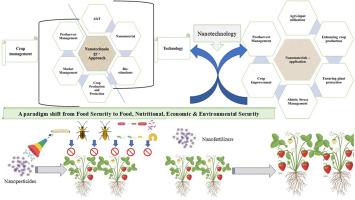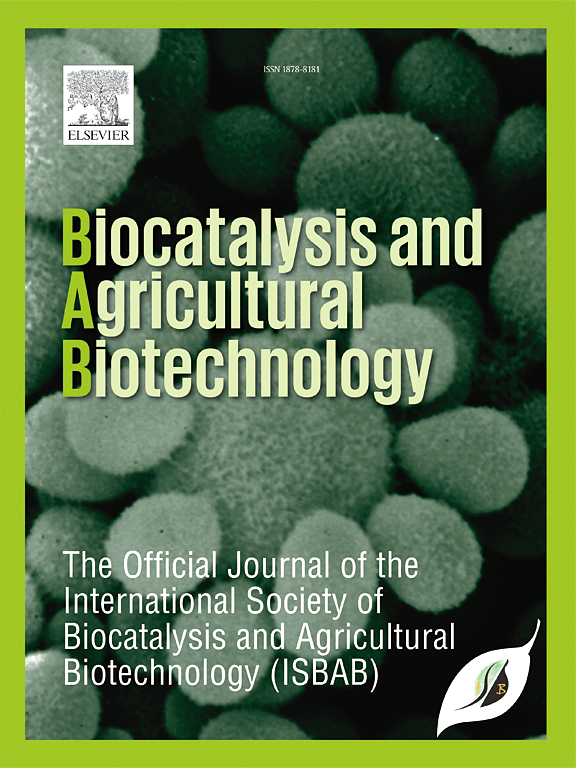Nanoagrochemicals: Ensuring sustainable productivity through nutrient and pest management in strawberry (Fragaria × ananassa Duch.)
IF 3.8
Q2 BIOTECHNOLOGY & APPLIED MICROBIOLOGY
引用次数: 0
Abstract
Strawberry cultivation is commercially viable worldwide due to its high market demand, as it bears fruits with high nutritional value and appealing taste. Though a wide range of high-yielding varieties are available, their dependence on growing conditions restricts their commercial sustainability. To ensure the sustainable production of strawberries, it is essential to work on the management of the nutritional and biotic stressors through effective utilization of nanoagrochemicals. The new generation of nanofertilizers can be a potential source of plant nutrition, which could have high efficacy in delivering the essential elements to plants for balanced growth and yield. Encapsulating the biopesticides in nanoformulations can enhance the effectiveness of pesticides, leading to the minimum use of synthetic pesticides for ecosystem safety. The current review examines the transformative impact of nanoagrochemicals on strawberry crop cultivation, specifically emphasizing the innovative utilization of nanofertilizers and nanopesticides. It investigates the potential advantages of enhanced nutrient management, improved soil quality, and augmented crop yields by using nanoagrochemicals.

纳米农用化学品:通过草莓的营养和病虫害管理确保可持续生产力(Fragaria × ananassa Duch.)
草莓种植在世界范围内具有商业可行性,因为它的果实具有高营养价值和吸引人的味道,市场需求量大。虽然有很多高产品种,但它们对生长条件的依赖限制了它们在商业上的可持续性。为了保证草莓的可持续生产,必须通过有效利用纳米农用化学品对营养和生物胁迫源进行管理。新一代纳米肥料可作为植物营养的潜在来源,高效地向植物输送必需元素,促进植物平衡生长和产量。将生物农药封装在纳米配方中可以提高农药的有效性,从而减少合成农药的使用,从而保证生态系统的安全。本文综述了纳米农药对草莓作物种植的变革性影响,特别强调了纳米肥料和纳米农药的创新利用。研究了纳米农用化学品在加强养分管理、改善土壤质量和提高作物产量方面的潜在优势。
本文章由计算机程序翻译,如有差异,请以英文原文为准。
求助全文
约1分钟内获得全文
求助全文
来源期刊

Biocatalysis and agricultural biotechnology
Agricultural and Biological Sciences-Agronomy and Crop Science
CiteScore
7.70
自引率
2.50%
发文量
308
审稿时长
48 days
期刊介绍:
Biocatalysis and Agricultural Biotechnology is the official journal of the International Society of Biocatalysis and Agricultural Biotechnology (ISBAB). The journal publishes high quality articles especially in the science and technology of biocatalysis, bioprocesses, agricultural biotechnology, biomedical biotechnology, and, if appropriate, from other related areas of biotechnology. The journal will publish peer-reviewed basic and applied research papers, authoritative reviews, and feature articles. The scope of the journal encompasses the research, industrial, and commercial aspects of biotechnology, including the areas of: biocatalysis; bioprocesses; food and agriculture; genetic engineering; molecular biology; healthcare and pharmaceuticals; biofuels; genomics; nanotechnology; environment and biodiversity; and bioremediation.
 求助内容:
求助内容: 应助结果提醒方式:
应助结果提醒方式:


